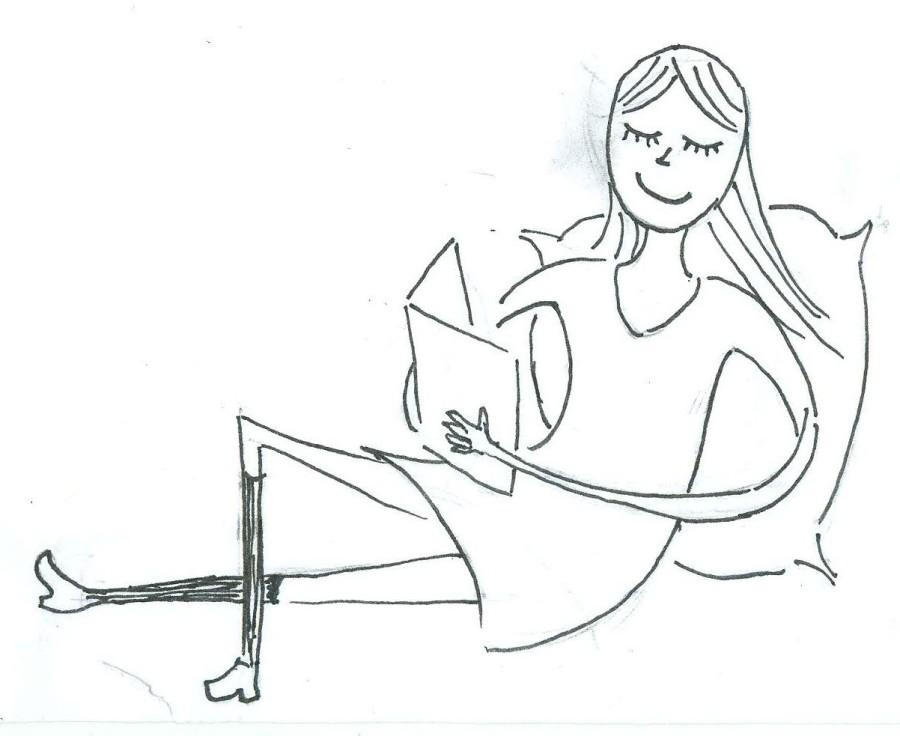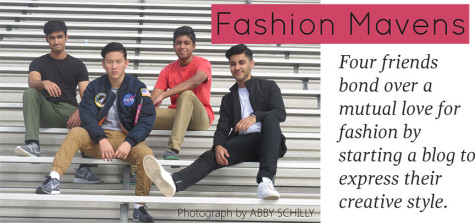In defense of the introvert
There is one thing Albert Einstein, Emma Watson, Bill Gates and J.K Rowling all have in common. Besides being incredibly successful individuals, they are all introverts. And they are most definitely not the minority. In fact, 41 percent of surveyed students at MHS consider themselves introverts, along with some 59 percent of the world. But despite being such a large group, many don’t understand what the word ‘introverted’ means.
“Some assume incorrectly that all introverts are shy, socially awkward and incapable of putting themselves forward,” Dr. David Sacks, psychiatrist and CEO of Elements Behavioral Health, said. “The reality is that introverts simply have a different way of interacting with the world that includes a rich internal life and a greater need for solitude.”
Differences in Personalities
Ultimately, introversion and extroversion is determined by where individuals gain their energy.
Dr. Sacks said introverts gain energy from solitude, while extroverts gain energy from social situations.
“It’s why an introvert is more likely to curl up with a book after a stressful day and an extrovert is more likely to start calling up friends,” Dr. Sacks said.
Both introverts and extroverts have positive and negative aspects to their personalities, and they both face unique challenges.
“Introverts may have to work to get themselves seen and heard in environments where extroverts predominate, such as in a school or work setting where team effort is prized,” Dr. Sacks said. “Extroverts, on the other hand, sometimes have to fight perceptions that they are bulldozing over the needs of others or failing to show the proper focus.”
Society’s Effects
While it sometimes seems that extroverts and introverts are complete opposites, there really are no pure introverts or extroverts.
“Everyone has some qualities of the other in their personality,” Dr. Sacks said. “Think of it as a sliding scale, and where we are on that scale can differ from moment to moment.”
Society’s expectations can also change how introverted or extroverted one’s behavior is in a certain setting, especially in modern culture which often favors extroversion.
“In our modern era, society tends to reward those with the sociability, assertiveness and competitiveness that mark extroversion,” Dr. Sack said. “That’s changing somewhat, thanks to an increasing understanding of what the introvert brings to the table.”
A major reason introverts face the stigma today is because they are misunderstood as shy.
“I think that to be shy, especially in our culture, is seen as unusual,” Ashley Hobbs, psychology teacher, said. “We focus on reality television where people are displaying their lives for the world to see. I think because that is often seen as the norm, people sometimes think that shyness is abnormal when in fact it’s not at all.”
Peer Views
In the classroom setting, many differences between introverts and extroverts are highlighted.
“Just because you don’t step up as the first one to volunteer, that doesn’t necessarily mean that you’re shy, it’s just that you’re more likely to wait for someone to ask your opinion,” Hobbs said.
Because of the differences between introverts and extroverts, teachers may find difficulty in including everyone without making one group feel uncomfortable.
“I tend to be the kind of teacher who does a lot of discussion based classroom where people participate as they want to,” Hobbs said. “An introvert is less likely to participate, however if I ask kids direct questions, then those people will be more likely to participate.”
Maddey Bussman, senior, said being an introvert does make school harder for her sometimes.
“I’m so worn out and exhausted by the end of the day,” Bussman said. “I think they definitely could make school easier for introverts. Simply letting people have quiet work time and not always making people work in groups would be really helpful.”
As an introvert, Bussman said she experiences the misconceptions – social anxiety and anti-social characteristics – of introversion.
No Single Personality Type
Even though Bussman considers herself, an introvert, she said she does have some extroverted traits.
“I like to spend a lot of time alone. I’m more introspective and reflective than outgoing. I’m pretty shy,” Bussman said. “ But I do like people.”
In addition, Bussman said she has a lot of extroverted friends.
“I think it’s important to realize not everyone thinks the same way you do,” Bussman said.
Similar is true for Kristin Blake, senior, who is an extrovert with an introverted best friend.
“Sometimes introverts are harder to get to know at first, but once you get to know them it’s great,” Blake said.
Blake said sometimes people assume things about her because of her outgoing personality.
“I think some people think that extroverts are really loud and don’t care about anybody else and just want to talk, talk, talk,” Blake said. “But you can be a shy extrovert or an outgoing introvert.”
Your donation will support the student journalists of Marquette High School. Your contribution will allow us to purchase equipment and cover our annual website hosting costs. You may become a PATRON by making a donation at one of these levels: White/$30, Green/$50, Blue/$100. Patron names will be published in the print newsmagazine, on the website and once per quarter on our social media accounts.

Abby Schilly, senior, is the copy editor for the Marquette Messenger. This is her second year as a reporter, and she loves it so far. She has been on...







